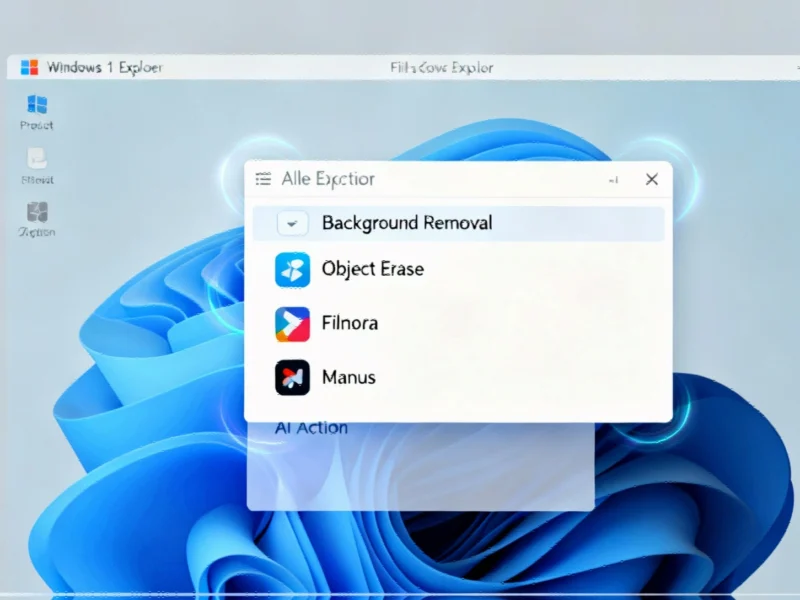OpenEvidence’s Meteoric Rise in Healthcare AI
While much attention in artificial intelligence has focused on general-purpose models like ChatGPT, specialized AI applications targeting specific industries are demonstrating remarkable growth and investor appeal. OpenEvidence, a Miami-based startup creating AI tools specifically for medical professionals, has announced a massive $200 million funding round at a $6 billion valuation, signaling strong confidence in niche AI applications.
The company, founded in 2022 by Daniel Nadler and Zachary Ziegler, has developed what many are calling “ChatGPT for doctors” – a specialized AI assistant trained exclusively on prestigious medical journals including JAMA and the New England Journal of Medicine. This focused approach to industry developments represents a significant shift toward domain-specific AI solutions.
Rapid Adoption in Medical Practice
OpenEvidence’s growth trajectory has been nothing short of spectacular. The platform now supports approximately 15 million clinical consultations monthly, up from 8.5 million just months earlier in July. This explosive growth reflects the healthcare industry’s increasing comfort with AI-assisted decision making and represents one of the most significant recent technology adoptions in medical practice.
“It’s reaching verb-like status,” commented Sangeen Zeb, partner at Google Ventures, the lead investor in the funding round. The comparison highlights how embedded the tool has become in daily medical practice, similar to how “Google” became synonymous with online search.
Engineering for Medical Reliability
What sets OpenEvidence apart from general AI models is its deliberate design for medical accuracy. The system is programmed to refuse answers when it has low confidence, significantly reducing the risk of AI “hallucination” that plagues some general-purpose models. This approach to related innovations in AI safety is particularly crucial in healthcare applications where incorrect information could have serious consequences.
The company’s business model has also contributed to its rapid adoption. Unlike traditional healthcare software that charges health systems directly, OpenEvidence remains free for verified medical professionals, supported by advertising. This strategy has enabled expansion to over 10,000 medical centers in just three years.
Funding Frenzy in Specialized AI
The $200 million investment comes just months after OpenEvidence raised $210 million in July at a $3.5 billion valuation, bringing total funding to approximately half a billion dollars. The funding round assembled remarkably quickly, with Google Ventures approaching Nadler on a Thursday and having most details ironed out by the following Sunday.
Other prominent investors in the round included Sequoia Capital, Kleiner Perkins, Blackstone, Thrive Capital, Coatue Management, BOND, and Craft. This level of investor enthusiasm for market trends in specialized AI reflects growing recognition that the most valuable applications may be in vertical-specific solutions rather than general-purpose models.
Competitive Advantages and Future Plans
Nadler emphasizes that OpenEvidence’s unique data position provides a significant competitive moat. The platform has collected more than 100 million clinical consultations, creating what he describes as invaluable training data that “no one else in the world has.” This massive dataset positions the company strongly amid broader industry developments in medical AI.
The new funding will support additional computing resources, enhanced AI training, and increased marketing investment. The company’s growth justifies this aggressive investment, with OpenEvidence adding 60,000 to 70,000 users monthly and already reaching half of its projected $100 million advertising revenue target for next year.
As detailed in comprehensive coverage of this funding milestone, OpenEvidence represents a compelling case study in specialized AI success. The company’s progress demonstrates how targeted AI applications can achieve rapid adoption and significant valuation in specific professional domains.
Broader Implications for Industrial Computing
OpenEvidence’s success story offers important lessons for the broader industrial computing sector. The company’s focused approach to health risk prediction through biological monitoring demonstrates how specialized AI can create substantial value in professional domains. Similarly, advances in genetic research and medical diagnostics show parallel developments in specialized computational approaches to complex medical challenges.
The intersection of computing hardware and medical applications continues to produce remarkable innovations. Recent breakthroughs in thermal management for next-generation computing systems enable the powerful processing required for complex medical AI. Meanwhile, fundamental research in material science and crystal engineering continues to push the boundaries of what’s computationally possible in scientific applications.
As OpenEvidence continues its expansion, the company stands as a testament to the power of specialized AI applications in transforming professional practice. Its success suggests that the future of AI may lie not in creating ever-larger general models, but in developing highly specialized tools that deeply understand specific domains and workflows.
This article aggregates information from publicly available sources. All trademarks and copyrights belong to their respective owners.
Note: Featured image is for illustrative purposes only and does not represent any specific product, service, or entity mentioned in this article.



